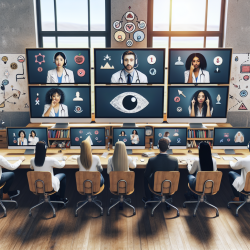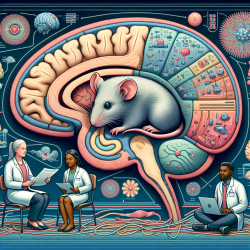Introduction
In today's digital age, internet usage is ubiquitous, especially among young adults and university students. While the internet offers numerous benefits, excessive use can lead to psychosomatic symptoms and affect mental wellbeing. A recent study titled Internet Use and Psychosomatic Symptoms among University Students: Cross-Sectional Study explores these relationships, providing valuable insights for practitioners in the field of speech-language pathology and online therapy.
Key Findings from the Study
The study conducted in Slovenia involved 464 university students, examining the correlation between internet usage and psychosomatic symptoms. Key findings include:
- Computer science students reported more frequent psychological symptoms compared to health science students.
- Headaches and stomachaches were positively correlated with increased computer time.
- Internet use for spare time activities was associated with lower levels of nervousness.
Implications for Practitioners
For practitioners providing online therapy services, these findings highlight the importance of understanding the nuanced effects of internet use on mental health. Here are some actionable insights:
- Monitor Screen Time: Encourage students to be mindful of their screen time, particularly distinguishing between study-related and leisure internet use.
- Promote Balanced Internet Use: Educate students on the benefits of balanced internet use, emphasizing activities that promote social connections and relaxation.
- Address Psychosomatic Symptoms: Be vigilant in identifying symptoms such as headaches and stomachaches, which may be linked to excessive computer use.
Encouraging Further Research
This study provides a foundation for further research into the effects of internet use on psychosomatic symptoms. Practitioners are encouraged to explore additional variables such as the type of internet content consumed and its impact on mental health.
Conclusion
Understanding the relationship between internet use and psychosomatic symptoms is crucial for improving mental wellbeing among university students. By leveraging these insights, practitioners can enhance their therapeutic approaches and contribute to better outcomes for their clients.
To read the original research paper, please follow this link: Internet Use and Psychosomatic Symptoms among University Students: Cross-Sectional Study.










